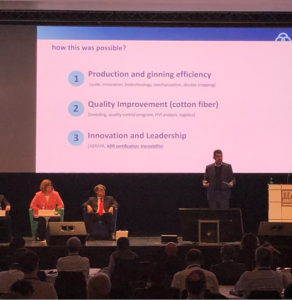Brazilian cotton is highlighted at the ITMF with sustainability and innovation
Business and Markets |
The Brazilian Cotton Growers Association showed how and why Brazil became the second largest exporter in 20 years, at the Annual Conference of the International Textile Manufacturers Federation (ITMF).
The search for an increasingly sustainable production system explains the transformation of the Brazilian cotton industry. Brazil, which was the second largest importer of cotton in the 1996/97 season, became the second largest world exporter in the 2018/19 cycle. And that was the focus of the participation of the Brazilian Cotton Growers Association (Abrapa) in the Plenary on Fiber held at the Annual Conference of the International Textile Manufacturers Federation (ITMF), which took place in Davos, Switzerland, last September 18.
The plenary gathered the main players of the world textile industry and Abrapa’s topic was “Sustainability as a Core Strategy: The Case of Cotton in Brazil”. The presentation featured the Brazilian experience in the responsible production of fiber, with the Responsible Brazilian Cotton (ABR) program as a major driver for advances in the national cotton production.
Brazilian Cotton at the ITMF
The discussion panel on fiber, in which Abrapa participated, also included Stephanie Silber, from the Bremen Cotton Exchange (Germany), who spoke about “The current world of cotton”, and Marc Lewkowitz, from Supima (United States), whose theme was “Rebuilding value through authenticity”.
At this year’s conference, the ITMF adopted the theme “Climate Change and a Sustainable Global Textile Value Chain” to draw attention to the short and medium-term challenges faced by the industry.
The International Textile Manufacturers Federation (ITMF) brings together textile industries operating around the world. Its goal is to provide its members with qualified information about the textile sector, either through research, studies or publications. In addition, it promotes annual events and acts as an important information center to identify future trends for the development of the sector.

ABR Program ensures sustainability for Brazilian cotton
In place since 2012, the ABR program is the Brazilian protocol for social and environmental certification, which evaluates compliance with Brazilian environmental and labor laws, in addition to good agricultural practices and rational use of inputs by participating farms. Guided by the concept of continuous improvement, the ABR fosters production efficiency, investment in fiber quality, and traceability of the national lint.
During the presentation, Abrapa’s International Relations Director, Marcelo Duarte, showed how the large-scale adoption of the ABR program by cotton farmers has made Brazil stand out in responsible large-scale production.
“In the 2019/20 crop, Brazil represented only 11 percent of the world production, but accounted for 37 percent of the world’s sustainable cotton supply,” Duarte emphasized, using data from the 2021 Textile Exchange report. “Brazilian cotton farmers are in line with the global demand for sustainable and traceable fibers and has done their homework. We keep growing, expanding, and investing in new actions to move forward,” said Abrapa’s director.
The broad adherence to the ABR protocol explains why, in Brazil, to produce cotton is to farm responsibly. “The program helps Brazilian growers better organize in relation to productivity, efficiency in the use of inputs, and to comply with Brazil’s labor and environmental legislation. That is why we say that the ABR has been a guide for the growth of cotton production in the country”, says Júlio Busato, Abrapa’s president.
In the 2020/21 crop, 84% of the national production was certified by the ABR program.

Sustainability brings benefits to global customers
It is not only the farmers that stand to gain from certification. Buyers (whether domestic or international) have received a product of increasingly higher quality, and with the upside that it can be easily traced from its origin via QR Code or bar code.
Moreover, the cotton farms that are certified contribute to increase the environmental conservation indexes in Brazil. The efficient use of natural resources makes Brazil the country with the smallest irrigation water footprint in the world – consuming 99% less than the world average, according to the International Cotton Advisory Committee (ICAC).
Another benefit is that ABR farms emit 41% less greenhouse gases than the world average, according to a comparative study based on data from Antesis and Amaggi.
